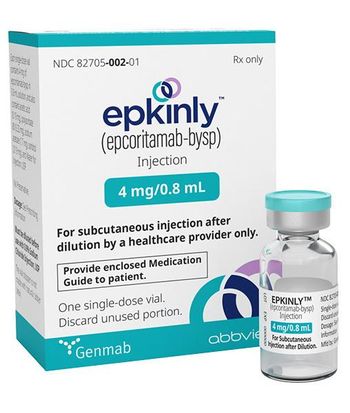
Clinical, Economic Outcomes Associated With Alloimmunization in MDS
The researchers found inferior outcomes and higher accrued costs associated with alloimmunization in patients with myelodysplastic syndromes (MDS), a disease that relies on transfusion of red blood cells.
New study findings highlight the value of preventing alloimmunization in patients with
Publishing these new findings in
Although further research is needed, the findings are consistent with those in sickle cell disease (SCD) and thalassemia, and highlight the potential clinical and economic consequences of the alloimmunization in a disease that relies on transfusion of red blood cells (RBCs).
Certain proactive measures, including prophylactic antigen matching, can reduce the risk of alloimmunization. Recent years have seen certain hematology groups and countries begin to recommend or implement expansion of antigen matching for certain patients, such as those with SCD. For example, the American Society of Hematology has recommended broader use of red cell antigen matching, and the United Kingdom is planning on providing matched RBCs to patients with SCD and thalassemia.
“This change in policy seems to suggest a broader acceptance that alloimmunization is important to mitigate for transfused populations beyond SCD,” explained the researchers. “Taken together, our findings suggest that alloimmunization is associated with higher risk of intensive care unit [ICU] admission and death in the MDS population; it is highly plausible that MDS patients are another group that could benefit substantially from providing prophylactic antigen matched RBCs for transfusion.”
The group analyzed data from nearly 40,000 patients, 4900 alloimmunized and 34,000 nonalloimmunized, with multivariate analysis showing that alloimmunized patients had a 38% increased risk of ICU admission (P < .0001) and 30% increased risk of mortality (P < .0001). Analysis also showed a 21% increase in length of hospital stay (P < .0001) and 55% increase in ICU stay (P < .0001) for alloimmunized patients.
Admissions for autoimmunized patients also carried increased costs, with a 14% higher inpatient admission cost, translating into a median increase of $2800 compared with nonalloimmunized patients.
Noting that their study had several limitations, the authors explained, “This work entails some limitations. The chargemaster data represent a log of health care diagnostics, cost, and utilization for accounting purposes and may misclassify certain conditions. In addition, data are accumulated and analyzed at the encounter level, rather than on a per-patient basis. Thus, a patient may be represented more than once and a comprehensive clinical history of any specific patient could not be obtained.”
The researchers were not able to directly identify alloimmunized admissions, although they used a previously validated approach in order to alleviate the limitation.
Previous research has indicated that gender and direct antiglobulin test (DAT) status could play a role in which patients with MDS experience alloimmunization.
References
1. Viayna E, Gehrie EA, Blanchette C. Alloimmunization in myelodysplastic syndrome is associated with higher healthcare costs, longer hospitalizations, and increased mortality. Transfusion. Published online August 7, 2024. doi:10.1111/trf.17966
2. Wood EM, McQuilten ZK. Outpatient transfusions for myelodysplastic syndromes. 2020;2020 (1):167-174. doi:10.1182/hematology.2020000103
3. Rydén J, Clements M, Wikman A, et al. Red blood cell alloimmunization in myelodysplastic syndromes: associations with sex, DAT-positivity, and increased transfusion needs. Transfusion. 2023;63(11):2040-2051. doi:10.1111/trf.17562
Newsletter
Stay ahead of policy, cost, and value—subscribe to AJMC for expert insights at the intersection of clinical care and health economics.
















